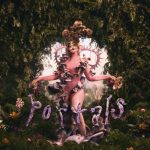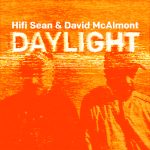Bebe Rexha is trading in her pop princess high heels for some rollerblades and taking a trip to the discotheque with her latest album, aptly titled Bebe. The album boasts a new sound for Rexha, seeing her unafraid to take on the 70’s vibe and capture the nostalgia and essence of the decade — even if Bebe‘s dancefloor worthy tracks tend to bleed into one another a little too much.
On ‘Heart Wants What It Wants’, Rexha opens Bebe with a melancholy uptempo disco-infused track that shows her exercising more control over her vocals than the songs she’s known for; ‘Heart Wants What It Wants’ swings Rexha up into her upper register with some blissful “woo’s” but rarely sees her belting like her life depends on it — appropriate for the track’s mood and message of a fickle heart.
‘Miracle Man’ keeps the funk going, finding Rexha on a quest to find the perfect man to make her believe in love again. The track mixes stronger, more signature vocals front and center with softer and even spoken/whispered backing vocals creating the perfect ascent to a romantic disco atmosphere.
Bebe starts off on the right foot of setting its tone as music for those nostalgic for the discotheque — and would-be listeners shouldn’t feel deterred at the sight of a Snoop Dogg collaboration ruining that mood. In fact, the two come together on ‘Satellite’ to escalate Bebe to even higher levels of disco deliciousness. Here, Rexha has found a delightful and unexpected new sound and revels in every bit of it, with Snoop adding a new layer of both comedy and rhythm.
Bebe pushes itself further on ‘When It Rains’, with Rexha edging closer and closer to her mainstream pop roots. The track features a driving, pounding beat and clever lyrics fans will have come to expect. “When it rains, I’m a tidal wave on a midnight train to you.”
‘Call on Me’ gets back to the disco delights — obvious from its title alone. Its message of self-empowerment and sexuality, dancing alone through the pain beckons you to the dancefloor and refuses to loosen Bebe‘s tight grip. “You never made me feel like heaven, never made me feel this high. […] If I need a lover, I’d call on me.”
Rexha’s collab with David Guetta ‘I’m Good (Blue)’ that heavily samples Eiffel 65’s ‘Blue (Da Ba Dee)’ will either be a newfound delight or an old returning earbug on Bebe, with the former probably being most applicable to younger fans who weren’t around for the late 90’s and early 2000’s when ‘Blue’ was inescapable.
‘I’m Good’ is, honestly, the least innovative or exciting part of Bebe due to its interpolation. Despite its resonance with audiences, ‘I’m Good’ is just a rehash of ‘Blue’ with the script flipped; other areas of Bebe explore these messages with more originality. Still, Guetta and Rexha’s collaboration and sampling of an already iconic track were a no-brainer for an easy chart-topper, and hopefully the track’s success will bring in new fans to experience the rest of the album.
The second half of Bebe kicks in with ‘Visions (Don’t Go)’, which sees Rexha returning to her peak vocally, but doing so with the disco instrumentation that feels appropriate for the rest of the album.
“I’ve been feeling low, might have got too high/ All I see are visions of another life,” Rexha sings, longing for her lover to not leave her. Rexha’s vocals feature the emotional, heartfelt, grand sweeping on ‘Visions’ that have found her success so far.
‘I’m Not High, I’m in Love’ takes extra care with its mix to create an atmosphere that is all encapsulating, which makes sense with the track leaning into its instrumental bridges to lead the song and the listener on a journey.
As Bebe kicks into ‘Blue Moon,’ the realization becomes apparent that the album is set deeply in its 70’s inspirations, even if that comes with its own limitations. While the 70’s were the decade of some of music’s greatest legends and a wide variety of music reaching success, Bebe looks at the 70’s with a narrow scope that can border on repetitive, despite Rexha’s best intentions at an invigorating homage.
‘Blue Moon’, for example, is not a bad track by any means, but as the ninth track on Bebe, the song begins to feel a bit too much like the tracks before it. Granted, this gives the album as a whole a sense of unity and cohesiveness, although it still feels like, overall, there are areas in each track where Rexha could’ve pushed herself outside of the 70’s bubble she found herself in.
Luckily, Bebe begins to course-correct as it winds down with ‘Born Again,’ a ballad that eschews the disco for the sounds of Fleetwood Mac. ‘I Am’ also leans into a Stevie Nicks’ vibe (more successfully than ‘Born Again’), before Bebe comes to a close with ‘Seasons.’
An unexpected duet with Dolly Parton, ‘Seasons’ that also finds itself in the vein of Fleetwood Mac ad one of their most well-known songs, ‘Landslide.’ “‘Landslide’ is one of the greatest songs of all time, but I just loved how it talked about change,” Rexha said of the track to SiriusXM. “And I was like, ‘I want to write my own version.’”
As an album, Bebe is a cohesive trip to a bygone era new for Rexha, and while Bebe‘s genre experimentation sometimes puts into a box, it’s one where Rexha sounds right at home inside its four shag walls.



